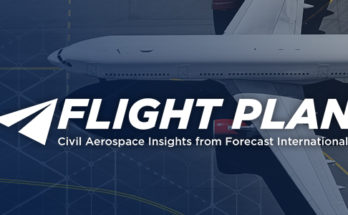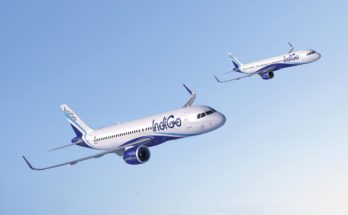
In the wake of the Russian Federation’s invasion of Ukraine, Western governments and private sector corporations have levied unprecedented sanctions on the country that have foreclosed numerous avenues through which the Russian economy connects to the wider world. On Wednesday, global commercial aviation giants Boeing and Airbus entered the fray, suspending their Russian operations and closing off the provision of spares and maintenance services to Russian operators of their aircraft.
With ongoing diplomatic efforts to bring the invasion to an end having so far come to naught, the prospect of a prolonged conflict that steadily renders Russia ever more isolated from Western economic and financial systems appears ever more likely. For Russian commercial operators, the impact of this emerging new reality will be profound.
In the decades subsequent to the collapse of the Soviet Union, Russian airlines and cargo operators have become deeply enmeshed in the wider global aviation market in terms of both acquisitions and retrofit, maintenance, and modernization services. For example, Russian operators collectively fly roughly 237 Boeing 737 series aircraft and 314 Airbus A320 series aircraft, along with smaller quantities of other aircraft. The average age of the collective Russian A320 fleet is 12.6 years, though a not-insignificant portion of the fleet is now approaching 20 years in operation.
Although the impact of these sanctions on Russian fleet serviceability will be less immediately apparent than their financial consequences, the sustained inability of Russian operators to reliably acquire spares and maintenance support through official channels has the potential to contribute to an intensifying serviceability crisis across many Russian commercial fleets over the coming 5-10 years. Russian operators will become progressively less able to address potential problems, particularly those identified in D‑check level maintenance intervals, without access to the global MRO networks that have hitherto sustained them. Although these potential problems could motivate Russian commercial operators and the government to even more comprehensively commit to the pursuit of industrial autarky in the aviation domain, such an endeavor would itself carry crushing upfront costs for a state and operators that may very soon be ill able to afford them.
A lifelong enthusiast of armored vehicles, Thomas serves as an analyst on Forecast International's Military Vehicles Forecast product. In addition, Thomas is responsible for updating the reports and analysis within Forecast International's International Military Markets – Latin America & Caribbean product. He also provides analysis for Forecast International's Airborne Retrofit & Modernization Forecast. Before this assignment, Thomas served as a research assistant for Forecast International's analytical team and has made written contributions to the Civil Aircraft Forecast, Military Aircraft Forecast, and Rotorcraft Forecast services. Thomas derives his knowledge from a multidisciplinary background, with a strong emphasis on the history and politics of Russia and the former satellite republics of the Soviet Union. He has studied in the Russian Federation at Saint Petersburg State University and is proficient in the Russian language at an advanced level.



